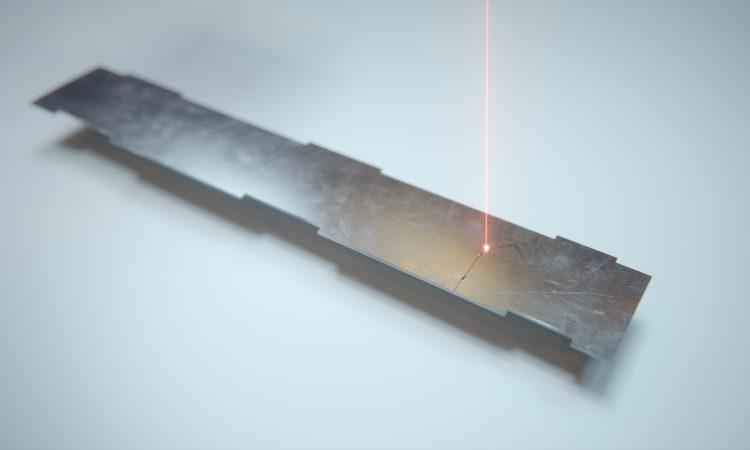
Stilfold will contribute its industrial origami manufacturing process to Kookiejar’s modular vertiports.
Swedish vertiport company Kookiejar has partnered with design and technology firm Stilfold on the production of modular vertiports for drones and electric-vertical-takeoff-and-landing (eVTOL) aircraft, incorporating the startup’s “industrial origami” manufacturing process in an effort to reduce weight and cost.
Based in Stockholm, Stilfold is a startup aiming to apply its lightweight, folding sheet metal manufacturing process to various forms of mobility, having previously built a sustainable, lightweight electric motorcycle made entirely from recycled steel, and contributing to Swedish automaker Polestar’s climate-neutral cars.
As its latest endeavor, Stilfold will enter the advanced air mobility (AAM) sector in partnership with Kookiejar, which is developing a network of affordable, modular vertiports that require minimal upfront infrastructure investment.
As part of that effort, Stilfold will provide its patented “industrial origami” manufacturing process, which involves the use of robots to build complex structures by folding flat sheet metal, according to co-founder and CEO Jonas Nyvang, who describes the lightweight, low-cost structures as ideal for AAM.
“Our process starts with software-enabled optimization of the structures, based on things like load and size, and from there we create the foldable structure in the program, which is fed into the CAM [computer-aided manufacturing] system where the actual folds are made with robotics,” Nyvang tells the AAM Report.
“The biggest advantage from the manufacturer’s perspective is the reduction of parts and materials, which means reduction of weight, costs and CO2,” Nyvang adds. “You don’t need dyes and you don’t need tooling, so that takes out a lot of time and investment from the manufacturing side.”
Among its first forays into the partnership, Nyvang says that Stilfold plans to assist Kookiejar in establishing its prototype vertiports in Dubai by year’s end, part of a partnership between Kookiejar and heliport operator Air Chateau intended to construct four initial vertiport locations in the Emirate.
Aside from vertiports, Nyvang said that aerospace manufacturing and AAM could prove to be an important future market for Stilfold’s patented manufacturing process.
“With electric aviation, weight is critical, because we have to accommodate the batteries as well,” he says. “We think that aerospace and electric aircraft, in particular, could be a super relevant and important market for us.”
Speaking to the AAM Report in March, Kookiejar CEO Michael Pettersson described the startup’s vision of building out distributed networks of dozens or even hundreds of vertiports in select markets to deliver on the promised benefits of AAM and drone delivery services.
But in order to do so, each vertiport will need to be affordable and relatively easy to construct and operate to close the business case, according to Pettersson.
“To be able to do a full-scale business at the end of the day, you need to have a flexible light vertiport,” he said. “We don’t believe in these infrastructure-heavy buildings ... We think that anything we build has to be easy to implement and scalable to grow over time with the demand–not elaborate costly designs that increase the fee for a flight.”
